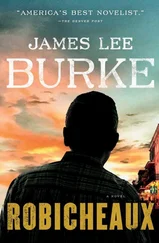“Look, couldn’t you give me the ticket and let it go?”
“Both of you get in my car, please.”
“I say,” Wally said.
The officer opened the door for Avery to get out.
“Let’s go,” he said.
“You can’t get me on a D.W.I. I’m not drunk.”
“He’s disgustingly sober,” Wally said.
“Don’t make it hard on yourself, Broussard.”
“I haven’t had more than four beers this evening.”
“Get out of the car.”
“I’m not going to jail for a D.W.I.”
“You just have to go to night court and pay your fine.”
“We’re absolutely broke. That means the can, doesn’t it?” Wally said.
“Come on, Broussard.”
“All right, but I want a test. Do you understand? I’m not going to jail on a drunk charge.”
“Have you been in jail before?”
“No.”
“Put away your beer and come along, too,” he said to Wally.
“Righto. Just a moment. I never leave an unfinished drink about.” Wally drank down the last of the beer in the bottle.
“I want the test right away. As soon as I get in the station,” Avery said.
“You’ll get it.”
“No jail, either. You understand.”
“Both of you get out.”
“Let go of my shoulder,” Avery said.
“I told you to get out.”
“Take your hand off me.”
“You’re making trouble for both of us. Now climb out of there.”
Avery knocked his hand away.
“All right, stand up,” the officer said. “You heard me. Put your hands against the car.”
“Isn’t this a bit absurd?” Wally said.
“Put your hands on the car and lean on them, Broussard.”
Avery stood with his feet wide apart and his weight on his arms. The officer shook him down carefully. He kept one leg inside Avery’s as he patted with his hands along his trousers so he could kick his feet out from under him if he attempted anything.
“You’re next. Lean against the car,” he said to Wally.
“You haven’t any abnormal complexes, have you?”
“Do what I tell you.”
Wally turned around and placed his hands on the car fender. The officer searched his pockets.
“Get in the back seat of my car,” he said.
The inside of the police car was fitted with a thick wire screen which was attached to the roof and bolted to an iron bar that ran along behind the driver’s seat so that the driver was protected from anyone behind him. Wally and Avery got in, and the officer pulled the car up to unblock the driveway and went back to move Suzanne’s sports car out into the street and park it by the curb.
As they rode down to the police station Avery began to feel afraid. It was an empty sick feeling in his stomach, the same sick feeling he had when he was taken to the work camp on the train in handcuffs and a prison guard met him and the deputy sheriff at the depot and they drove down the dirt road in the pickup truck and he had looked out the window and had seen the white barracks through the pines and the denim uniforms of the men and the high fence with the strands of barbed wire at the top. He felt in his pocket for his cigarettes and found that he had only the package of Virginia Extra he had bought earlier in the evening. He tried to roll a cigarette and the tobacco shook out of the paper. He took a cigarette from Wally, but the smoke tasted bad in his mouth. He tried to remain reasonable and to think of the best thing to do, and then he knew that there was nothing to do; they had him and maybe they would fine him and let him go, or someone might check and discover that he was an exconvict, and that would mean the jail without bond and a trial for parole violation and then the ride on the train back to the work camp and two more years on the gang.
They walked up the steps of the police station, a brown brick building with yellow shades on the windows. There was a big marble corridor inside and spittoons were placed along the walls, and at the end there were two varnished swinging doors with panes of frosted glass in them. Wally and Avery and the officer went through the doors into a large room where there were several desks, filing cabinets, spittoons, and telephones. There were only two men at the desks. One of them was in uniform. The officer told Avery and Wally to sit down on the bench by the wall and wait. Avery rolled another cigarette and the tobacco fell out the ends, and when he lighted it the paper flared up and made the smoke hot in his throat, and finally the cigarette broke apart in his hand. The officer made out his report and started to leave.
“Am I being charged with a D.W.I.?” Avery said.
The policeman didn’t answer him and walked back out through the wood doors.
The officer in uniform at the desk came over to them with some papers and a fountain pen in his hand. He had a square, blunt, red face and brown hair that had begun to thin and recede at the forehead. He sat down beside them on the bench and crossed his leg and held the papers on his thigh to write.
“What is your name?” he said to Wally.
“Wally Laughlin.”
“Age.”
“Twenty-five.”
“Why did you give the officer some trouble?”
“I assure you I didn’t. The fellow seemed intent on making a fool of himself.”
“That’s enough of that.”
“What am I being charged with?”
“You’re not charged with anything. You can go if you like. Just try to cooperate with the police next time.”
“Why was I brought down here?”
“You’d better go, son.”
“Do you want me to do anything?” he said to Avery.
“What time is night court?”
“Eleven o’clock,” the officer said.
“Go tell Suzanne what happened. Ask her if she can raise the fine,” Avery said.
“Are you sure you don’t want me to stay around?” Wally said.
“Just see Suzanne.”
“We’ll get the car and come back before eleven.”
“Thanks.”
“Take care.”
“So long.”
Wally went out through the doors, which swung back behind him.
“How do you want to enter your plea?” the officer said, his red, square face looking at Avery.
“What are the charges?”
“No license, going the wrong way on a one-way street, and driving while intoxicated.”
“I’m not drunk. I wasn’t drunk in the car.”
“Do you want to plead not guilty?”
“The officer said I would get a test.”
“A test won’t tell us anything now. You might be sober at the station, but that don’t mean you weren’t tight earlier.”
“That man knew I wasn’t tight.”
“You had liquor in your possession.”
“Where did the other officer go?”
“Out on call.”
“If I plead not guilty and he’s not in court, that means I get off, doesn’t it?”
“It will be better for you to plead guilty. You’ll only get a fine that way.”
“I’m not getting caught for a D.W.I.”
“All right, son. Not guilty. Were you ever arrested before?”
“No.”
The officer wrote on the papers held against his thigh.
“Whose car were you driving?”
“My girl’s.”
“What is her name?”
“Is that important?”
“Yes, it is.”
“Suzanne Robicheaux.”
“We’ll have to check you through for a previous violation.”
Avery felt that sick empty feeling in his stomach again. The officer gave the papers to the detective at the desk and asked him to check Avery’s name through their records. The detective was dressed in a pair of unpressed slacks and an open-neck sports shirt, and his undershirt showed at the top of his chest. He had a cold and he blew his nose often on a soiled handkerchief. There were deep pockmarks in the back of his neck, and his skin was coarse with large pores. His eyes squinted as he read the papers on his desk and he held the handkerchief to his nose with both hands and blew. He turned around in his chair and looked at Avery, wiping his upper lip with the handkerchief.
Читать дальше












